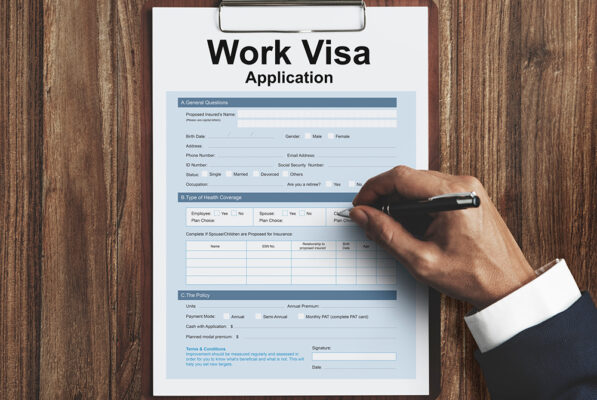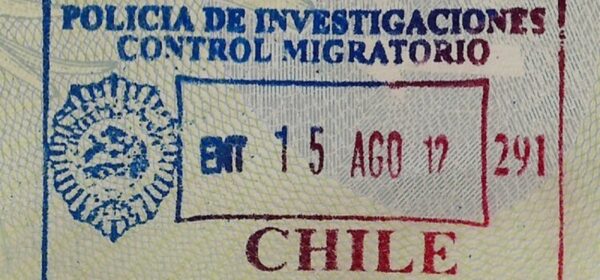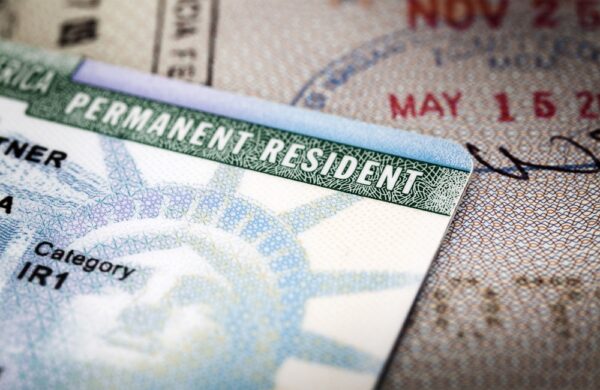Dubai, known for its booming economy and tax-free income, has become a dream destination for professionals and businesses alike. Whether you're a corporate employee, an entrepreneur, or a freelancer, there are different work visas in Dubai that cater to different employment needs. Foreigners also come to Dubai on tour. However, people with tourist visas are not allowed to work.
Getting around these visa options can be tricky for a foreign worker. However, choosing the right visa out of the numerous types is essential. In this article, we'll explore the different kinds of work visas available in Dubai, the application processes, and the requirements.
General Eligibility Requirements for The Different Work Visas in Dubai
Before we move on to the types of work visas in Dubai, it’s important to know if you’re eligible.
To be eligible for a work visa application in Dubai as an employer, you need to meet the following eligibility requirements:
- An employer must have a valid operating license.
- The employee's role must be in line with the company's activities.
- Compliance with labor laws with no record of violation.
- No outstanding fees, fines, or penalties.
- Must be eligible to sponsor a foreign employee.
- If employing workers are above the age of 65, they must pay an additional fee of AED 5,000 every two years for as long as the worker is with them.
Foreign employees, on the other hand, must meet the following criteria to be eligible:
- Must have secured a job in Dubai.
- Minimum education of a high school diploma, depending on job type.
- Medical certificate to show you are fit and free of diseases.
- No criminal record.

Types of Work Visas in Dubai
It's pretty easy to get a work visa or permit in Dubai, as the UAE has a straightforward application process. The Ministry of Human Resources and Emiratisation (MOHRE) is responsible for the visa process and visa regulations in Dubai. So, we will see the different work visas in Dubai.
Standard Work Visa
If you're planning to work in Dubai, the standard work visa, often referred to as employment work visa, is likely the one you will come across. Basically, if you've been hired by a company based in Dubai, this is the visa you'll need to work there legally.
Once you secure a job in Dubai, your employer will sponsor your visa and take care of most of the paperwork. This includes your work permit and employment entry visa. After approval, you'll get a temporary entry visa to enter Dubai, where you'll be able to complete your registration by taking medical exams, applying for an ID card, and finalizing your residence visa. Typically, the employment visa is valid for 2 to 3 years, depending on your contract.
However, you should note that your employment visa is tied to your job. This means if you switch employers or lose your job, you'll need to transfer or cancel your visa. But don't worry; there are options for renewal and even grace periods if things change.
If your employer still wants your service and your visa is about to expire, there’s room for a renewal process. It's pretty similar to the initial application, but since you're already in the system, it's quicker and smoother.
Investor Visa
If you're thinking about starting a business or investing in Dubai, the Investor Visa is your go-to visa. It's designed for entrepreneurs and business owners who want to launch a new venture or invest in an existing one. The specific amount you need to invest can vary, but typically, you'll need to invest at least AED 72,000 in a company.
With a 3 years validity, the Investor visa allows you to live and work in Dubai while running or owning a business. It's perfect for those looking to maximize Dubai's booming economy and business-friendly environment. With this visa, you'll be free to manage your investments directly in person.
Apart from living in one of the most dynamic cities in the world, you get to enjoy tax-free earnings and the ability to sponsor your family for residency. Plus, if your investment is large enough, you could qualify for a 10-year Golden Visa; talk about long-term planning.
For your visa application, you need the following aside from the general requirements:
- Proof of your investment or ownership in a Dubai-based company.
- A valid commercial license
- Financial statements or other documents verifying the amount you've invested.
Partner Visa
The Partner visa is quite similar to the investor visa in the sense that it's business-oriented and also requires a commercial license, but they are different. If you want a business by becoming a co-owner in Dubai, the Partner Visa is your way in.
This visa category is specifically designed for individuals who wish to partner with existing businesses in the UAE. It gives you the legal right to live, work, and manage a business in Dubai. Also the company you are in partnership with will sponsor your visa application.
To qualify for a Partner Visa, you must prove your investment or co-ownership in a Dubai-based company. Generally, you must either own shares in a company or be registered as a business partner in a local enterprise.
For this visa, the shareholding or investment amount required can vary, but it's usually recommended that you have a significant stake in the business, typically around AED 72,000 or more in capital investment.
Once you have this visa, you can sponsor your family members for residence visas. The Partner Visa has three years of validity with the option of renewal as long as you remain a business partner or co-owner.
Your business documentation is an important requirement when applying for a partner work visa in Dubai. You'll need to provide proof of your business involvement, such as the company's trade license and your shareholding details.
Green Visa
This 5-year residency visa is your best bet if you're a skilled employee, investor, or freelancer who wants a long-term residency with fewer restrictions. Unlike traditional work visas, the green visa allows holders to sponsor themselves and their families without needing an employer's sponsorship.
The green visa is a good idea in terms of flexibility for both employment and freelancing opportunities.
Golden Visa
If you're an investor or entrepreneur in Dubai, you don't want to miss out on being a Golden Visa holder. This long-term residence visa provides a 10-year residency option for investors, entrepreneurs, and top-notch professionals; that sounds good, right? It's perfect if you're looking for long-term stability and tax benefits. The good thing is you can even bring your family over if you want.
For this visa, you must have a significant investment, own a business, or have skills that stand out. The application is straightforward, just submit your documents and await approval through the UAE government channels.
The processing cost for the Golden Visa in Dubai generally ranges from AED 2,800 to AED 5,000. This includes visa fees, administrative charges, and any associated costs for document processing and medical examinations.
Requirements for a Golden Visa
- Collect necessary documents proving eligibility, such as investment records, business ownership, or professional qualifications.
- Apply through UAE government channels or authorized entities and submit your applications.
- Wait for the application to be reviewed and approved.
- Once approved, you can now receive your 10-year Golden Visa.
Freelancer Visa
Freelance digital professionals, digital nomads, and remote workers who are foreigners are not exempted from applying for a work visa in Dubai. Remote workers or freelancers who want the freedom to offer their services to multiple clients without needing to be employed full-time by one company can apply for Dubai's freelance visa.
Most Freelance visa holders are usually from popular sectors like media, tech, education, and design. What's great about this visa is that it gives you the flexibility to manage your workload, choose your projects, and even work remotely from anywhere within Dubai.
For a freelance Visa, you must be able to prove your expertise. In addition to proving your expertise, you'll need to fulfill these document requirements: a portfolio or proof of work, a relevant degree or educational certificate, and financial evidence that you can support yourself while freelancing in Dubai.
Besides being able to work for yourself, the flexibility to work with clients both in the UAE and internationally. Plus, it's renewable, so you can keep the freelance life going as long as you want. The freelance visa cost between AED 1,500 and AED 3000.
Applying for a Freelance Visa is quite straightforward. First, you'll need to apply through a free zone that offers freelance permits, like Dubai Media City or Dubai Internet City. The steps include:
- Submitting your portfolio, qualifications, and relevant documents.
- Applying for a freelance license, which allows you to work as a freelancer in Dubai legally.
- Once the permit is approved, you can apply for the Freelance Visa itself.
Mission Visa
Mission Visa is a temporary work visa designed for professionals who need to work in Dubai on short-term projects or specific assignments. To apply for this visa, your Dubai employer must demonstrate that your presence as a foreign employee is required for a particular project.
The mission visa is ideal for consultants or project managers who want to enjoy flexibility on short-term work assignments without requiring long-term residency. It has a six-month validity but can be extended if necessary. The fee for a mission visa is between AED 1,000 and AED 2,000, depending on your mission and the duration of your stay.
Temporary Work Visa
Temporary Work Visa allows individuals to work in Dubai for a limited period without a long-term contract. This visa is commonly issued for workers brought in for temporary or seasonal jobs.
The validity of this work visa is between 6 months and 1 year and can be renewed if the temporary job is extended. Depending on the time frame and work type, a temporary work visa can cost up to AED 3,000.
Document Required for Work Visas
It’s important to understand the general requirements that apply across most work visas for a foreign worker. Here are some of the documents you will need for work visas in Dubai.
- Valid Employment Contract: For most work visas, you'll need a valid job offer or proof of business ownership in Dubai before applying as a foreign employee or business owner.
- Sponsorship: All work visas require sponsorship, which varies in amount, whether by an employer, a free zone, or a business.
- Documents Required: Generally, you will need a valid passport and passport copies (with at least six months remaining) and recent passport-sized photographs.
- Medical Examination and Health Check: It’s compulsory for all visa applicants to undergo a medical examination to screen for contagious diseases. Medical examinations usually cost about AED 300 for all visa types.
- Emirates ID: Every resident of Dubai, including work visa holders, must apply for an Emirates ID, which acts as the primary identification document. To get this, you need your entry permit or visa and your original passport. The Emirate ID costs between AED 170 and AED 370.
- Entry Visa/Pink Visa: After your work permit is approved, you'll be issued an entry visa, which is like a temporary pass to enter Dubai. This allows you to come into the country and begin the process of getting your full employment visa.
General Application Process for a Work Visa in Dubai
Here's a step-by-step guide on how to apply for a work visa in Dubai:
- Before applying for a work visa, you must have received a job offer from a Dubai-based employer as an applicant. The employer will be responsible for sponsoring the visa application.
- The employer submits a work permit application to the Ministry of Human Resources and Emiratisation (MOHRE). The permit allows the employee to work in Dubai legally.
- Once the work permit is approved, the General Directorate of Residency and Foreigners Affairs (GDRFA) issues an entry Permit with a 60 days validity, allowing the employee to enter Dubai.
- After entering Dubai as an employee, you must undergo a medical examination to ensure you are fit to work. The test typically checks for infectious diseases like tuberculosis and HIV.
- The Emirate ID is also important, and you need to apply for it by visiting an authorized Emirates Identity Authority (EIDA) center for biometrics, including fingerprinting.
- The employer submits the necessary documents to the GDRFA to process the residence visa, which is usually valid for 2 to 3 years and stamped into the employee's passport.
- Once all the formalities are complete, the employee will receive their work permit, officially allowing them to work in Dubai.
Processing Time Frame For Different Work Visas in Dubai
The processing time for most Dubai work visas ranges from 2 to 6 weeks, depending on the type of visa. Generally, you can expect the following timelines:
1. Standwork Visa:
Typically, the processing time for an Employment Visa ranges from 2 to 4 weeks. This includes the time needed for the work permit approval, entry visa issuance, and finalization of the residence visa.
2. Investor Visa:
The Investor Visa process can take about 3 to 6 weeks, depending on the complexity of your investment and the documentation required. This time frame includes the approval of your business documents and the issuance of the visa.
3. Freelance Visa:
For the Freelance Visa, you can expect the process to take around 2 to 4 weeks. This includes obtaining the freelance permit from a free zone and the subsequent visa issuance.
4. Partner Visa:
The Partner Visa generally takes 3 to 6 weeks to process, as it involves verifying your business ownership or partnership details and completing the necessary health and identification checks.
5. Green Visa:
For the Green Visa, the process usually takes 2 to 4 weeks. This includes checking proof of professional skills or freelance permits and the issuance of the visa. The time frame depends on how quickly all necessary documents are submitted and reviewed.
6. Golden Visa:
Since the Golden Visa is a long-term residency visa, the processing time is generally 3 to 6 weeks. This includes the review of investment documents, qualifications, and the issuance of the visa. The complexity of the applicant's profile, such as the size of investments or academic achievements, can slightly affect the timeline as well.
7. Mission Visa:
The Mission Visa is often processed within 1 to 2 weeks, given that it’s a short-term visa for specific projects or assignments.
8. Temporary Work Visa:
Processing for Temporary Work Visas typically takes 2 to 3 weeks. This includes the issuance of the visa for a set period, depending on the length of your temporary assignment.
Conclusion
Dubai offers a wide array of work visas, each designed to meet the needs of various professionals, from corporate employees to freelancers and business owners. Understanding the differences between these visas can help you choose the right path for your career or business.
















